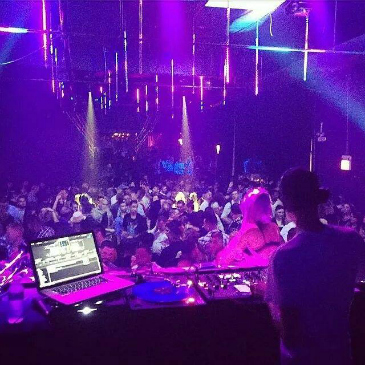Dolphin Nightclub Shooting Creates New Powers For CPD
By Jim Bochnowski in News on May 7, 2015 6:15PM
After a fatal shooting at Dolphin nightclub in March, the City Council has given additional powers to the police superintendent to close down "problematic" bars and nightclubs.
In March, a fight inside Dolphin spilled outside, where a gunman fired several shots into a crowd, killing two men and injuring two others. The Dolphin was no stranger to late-night violence; it's been the site of several shootings and stabbings over the years. The Dolphin has been written up for various offenses at least 14 times since 2006, with charges ranging from over-occupancy violations to a failure to notify police of criminal conduct, according to the Chicago Sun-Times, and it even lost its liquor license in 2012.
While the city has been successful in shutting down the bar temporarily, officials have been unable to fully ensure that the bar could eliminate future "problematic" behavior. Under current law, the Chicago Police Department has the ability to temporarily shut down a business if a violent act occurs on the premises. However, once the police have concluded their investigation of the incident, the business is allowed to reopen until the conclusion of a license disciplinary hearing, a process which could take up to six months.
Under an ordinance passed by the City Council's License Committee, illegal discharge of a firearm, aggravated assault or battery or criminal sexual assault on the premises of a business would call for an indefinite suspension of the establishment until the “public nuisance” is eliminated. Conduct by the owner of the facility that causes another person to suffer "unconsciousness, severe bruising or bleeding or disability or disfigurement" would also trigger these penalties.
Ald. Brendan Reilly (42nd), one of the chief sponsors of the ordinance, along with Mayor Emanuel, stated that this is a necessary move:
“When you have a bad actor — nightclubs are probably the best example — these [are] ticking time bombs. And if you have one violent incident at a nightclub, chances are you’re probably gonna have another one. This allows the department to step in, suspend that operation, evaluate it, [and] determine whether or not it’s safe. If it’s safe, they’ll work on a plan to reopen that business. If it’s not, they’ll remain closed, and they [must] change the way they behave.”
